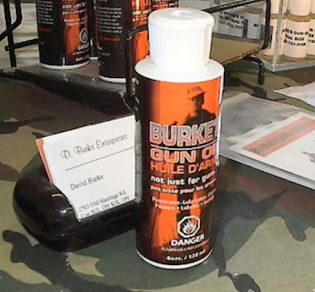The Essential Guide to Oil a Gun: Understanding Gun Oil Uses and Best Practices
As a responsible gun owner, it's crucial to properly maintain your firearms for safe and reliable operation. One essential aspect of firearm maintenance is oiling the gun with the right type of gun oil. We will explore the importance of oiling a gun, the various gun oil uses, and best practices for effectively oiling your firearms.
Why is Oil a Gun Important?
Properly oiling a gun is critical to ensure smooth functioning and longevity of the firearm.
Here are some key reasons why oiling a gun is important:
● Prevents Rust: Firearms are susceptible to rust, which can cause corrosion and damage to the metal parts. Applying gun oil creates a protective barrier that helps prevent rust from forming, especially in humid or damp environments.
● Reduces Friction: Gun oil acts as a lubricant, reducing friction between moving parts of the gun. This helps improve the overall performance of the firearm, allowing for smooth cycling and firing.
● Cleans and Protects: Gun oil has cleaning properties that can help remove dirt, debris, and fouling from the gun's components. It also provides a protective layer that shields the metal from moisture, dust, and other contaminants.
Gun Oil Uses
Gun oil has various uses in firearm maintenance.
● Lubrication: Applying gun oil to moving parts such as the slide, bolt, and trigger can help reduce friction and ensure smooth operation.
● Rust Prevention: Gun oil can be applied to the external and internal surfaces of the firearm to protect against rust and corrosion.
● Cleaning: Gun oil can be used as a solvent to clean fouling, residue, and other contaminants from the gun's components.
●
Storage: Applying a thin coat of gun oil before storing your
firearms can help protect them from rust during long periods of inactivity.
Best Practices for Oil a Gun
Properly oiling a gun requires following some best practices. Here
are some tips for effectively oiling your firearms:
Use the Right Gun Oil: Not all gun oils are the same, and it's important to use high-quality gun oil specifically designed for firearms. Avoid using household oils or lubricants, as they may not provide the necessary protection and could damage your gun.
Apply Sparingly: When oiling a gun, less is often more. Avoid over-applying gun oil, as excess oil can attract dirt and debris, leading to potential malfunctions. Apply a thin coat of gun oil to the necessary parts, following the manufacturer's recommendations.
Wipe Excess Oil: After applying gun oil, use a clean cloth to wipe off any excess oil from the gun's surfaces. This will prevent oil from pooling and ensure a proper, thin protective layer.
Regular Maintenance: Regularly oiling your firearms is essential for proper maintenance. Follow the manufacturer's recommendations for the recommended maintenance schedule and oiling intervals.
Conclusion:
Oiling a gun is a crucial aspect of firearm maintenance. Understanding the gun oil uses and best practices for oiling your firearms can help ensure their smooth operation, longevity, and reliability. By using high-quality gun oil, applying it sparingly, and following proper maintenance practices, you can keep your firearms in top condition and enjoy safe and reliable shooting experiences.



Comments
Post a Comment